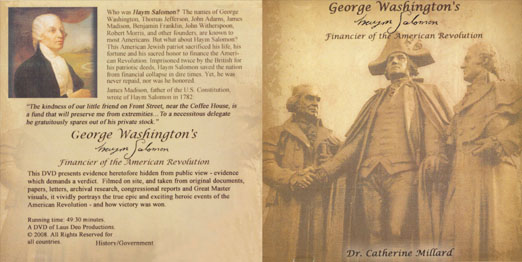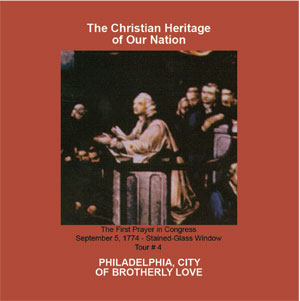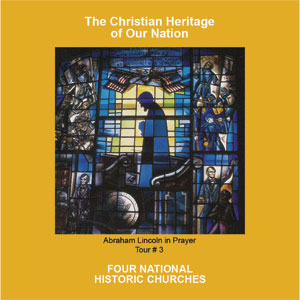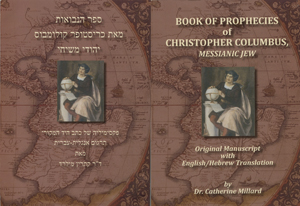A Memorial Erected to Honor Peter von Muhlenberg
On Thursday, April 1, 1976, the Religious News Service circulated this press release in respect to Peter von Muhlenberg:
Washington, D.C. – A memorial will be erected here to honor Peter Muhlenberg, remembered in American history as “the fighting parson of the American Revolution.” …A clergyman who dramatically pulled open his clerical vestments at the close of a sermon two hundred years ago to reveal the uniform of a colonel in the Continental Army, Muhlenberg went on to serve a total of eight years’ military service for the then fledgling country… Ultimately promoted to the rank of Major General, John Peter Gabriel Muhlenberg was the eldest of eleven children of Henry Melchior Muhlenberg, who has been referred to as the “patriarch” of Lutherans in this country. The younger Muhlenberg was ordained by the Lutheran ministerium of Pennsylvania in 1768, serving parishes in New Germantown, Pennsylvania, and Bedminister, New Jersey. Then moving to Woodstock, Virginia, he was asked by the Anglican Church to serve German-speaking settlers there, agreeing to be ordained as Anglican minister in 1772. It was at the close of a four-year ministry at the Anglican Church in Woodstock in 1772 that he threw off his black clerical robe and revealed his Continental Army uniform, quoting the Bible from the Book of Ecclesiastes, Chapter 3, verse 8: “There is a time of peace and a time for war.”1
Muhlenberg’s Farewell Scripture
This Scriptural admonition reads, in its entirety, as follows:
There is an appointed time for everything
And there is a time for every event under heaven
A time to give birth and a time to die;
A time to plant, and a time to uproot what is planted
A time to kill and a time to heal;
A time to tear down, and a time to build up
A time to weep and a time to laugh;
A time to mourn and a time to dance.
A time to throw stones, and a time to gather stones;
A time to embrace and a time to shun embracing
A time to keep and a time to throw away
A time to tear apart and a time to sew together
A time to be silent and a time to speak
A time to love and a time to hate;
A time for war, and a time for peace.
Ecclesiastes 3:1-8.
The original record of this unique epic of American history tells us that the congregation had just sung Martin Luther’s beautiful hymn, “A Mighty Fortress is Our God,” praising God’s sovereignty and power in the midst of great tribulation.2
Muhlenberg’s Parishioners Galvanized to Action
A number of Muhlenberg’s parishioners readily enrolled for service in the War for Independence. Thus, the German regiment was complete in March, 1776, its officers and men being for the most part, German settlers from Pennsylvania and New Jersey.3
Peter von Muhlenberg’s Amazing Accomplishments
Peter von Muhlenberg’s distinguished career shows these amazing accomplishments:
Chairman of the Committee of Safety and Correspondence of Dunmore County, Virginia, June 16, 1774; Member of the Virginia House of Burgesses, 1774; Delegate to the Virginia Convention, 1774; Colonel, Eighth Regiment, Virginia Line, February 13, 1776; Brigadier-General, Continental Army, February 21, 1777; Brevet Major-General, September 30, 1783; at Brandywine, Germantown, Valley Forge, Monmouth, Stony Point, Green Spring and Yorktown. Member of the Virginia State Society of the Cincinnati, transferred to the Pennsylvania State Society, 1789.4
Born at Trappe, Montgomery County, Pennsylvania, Peter was the eldest of eleven children of Henry Melchior Muhlenberg and his wife, Anna Maria Weiser, daughter of the well-known frontiersman and Indian Interpreter, John Conrad Weiser.5
Peter is Trained for the Ministry
When Peter was fifteen, his family moved from Trappe, Pennsylvania to Philadelphia.
He and his two younger brothers entered Benjamin Franklin’s Philadelphia Academy (now the University of Pennsylvania). Two and a half years later, the three boys went to a German school in Halle, Germany. A age twenty-two, Peter began his biblical studies to prepare him for his calling as minister of the Gospel. He did his pastoral internship in Philadelphia under a Lutheran pastor. Muhlenberg attracted great numbers of German Christians, who listened with rapt attention to the Word of God being brought to life through the preaching of powerful messages in their language.6
Pastor-Preacher in both English and German
Muhlenberg was then called by an Episcopal Church ministering to German settlers in the town of Woodstock, Virginia, as a preacher in both English and German languages, his salary being two hundred and fifty pounds a year.7
Muhlenberg is Elected to the House of Burgesses
His interest and involvement in community affairs led to his being elected to the House of Burgesses in Williamsburg. He was present when the patriots were banned from meeting at the Capitol by the British Governor, Patrick Henry making a renowned speech on this occasion urging action on the part of the patriots. As a result, George Washington stated that he would “raise and subsist one thousand men to go with them to Boston” to counter the British there. The decision was made to no longer export goods to England, nor to use British merchandise.8
The Source of Peter von Muhlenberg’s Strength – the Bible
All these exciting events characterizing the life and deeds of Peter von Muhlenberg during the War for Independence, find their source, once again, in God’s Book – the Bible – for it was immediately after his farewell sermon preached from the old log church in Woodstock, followed by the dramatic removal of his pastor’s cloak to disclose a soldier’s uniform, that “the fighting parson” began defending America’s freedoms.
To learn more, click here. (Statesmen/Heroes book)
___________________________
Bibliography:
1
Religious News Service. April 1, 1976. Memorial in Capital Planned to Honor “Fighting Parson.”
2
Hocher, Edward W. The Fighting Parson of the American Revolution – a Biography of General Peter Muhlenberg, Lutheran Clergyman, Military Chieftain and Political Leader. Philadelphia: Published by the Author, 1936, p. 63.
3
Ibid. p. 64.
4
Decennial Register of the Pennsylvania Society of Sons of the Revolution (1888-1898) Philadelphia: J.B. Lippincott Company, 1898.
5
Dictionary of American Biography. Peter von Muhlenberg. 1933 edition, p. 312.
6
Peter Muhlenberg – Pennsylvania. Office of the Architect of the Capitol, Washington, D.C.
7
Ibid.
8
Ibid.























